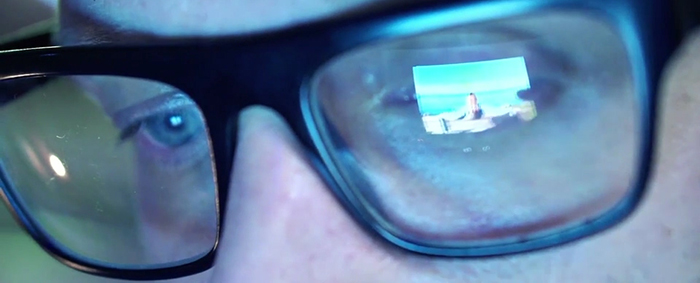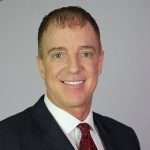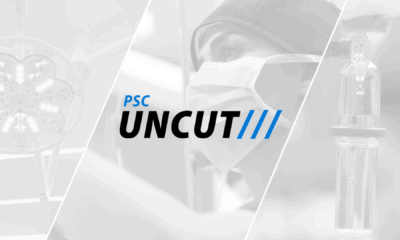Information and access to plastic surgeons has never been greater with the internet explosion. Likewise, the potential to be deceived by slick online advertising and fraudulent marketing may lead patients to unqualified practitioners.
When information is so easily accessible and the tools available to self-promote are readily attainable, it becomes a sort of wild west where potential plastic surgery patients could be led astray. Two board certified plastic surgeons discuss in this video how patients can combat misinformation and stray from unqualified practitioners who may be deceiving or even lying about their experience with procedures.
Unscrupulous Physicians Hijacking Plastic Surgery
The field of plastic surgery has grown and become more accessible to more people over the past decade. With the advent of minimally or even non-invasive procedures like Botox for wrinkles and CoolSculpting for fat removal, a huge influx of surgery averse patients are ready to start their own rejuvenation.
Injectables and modern devices offer smaller results with a smaller price tag, often requiring more procedures over a spanse of time starting at a younger age. Instead of waiting until the 11th hour for a face lift, a decades long maintenance program can be initiated and managed. Non-plastic surgeons see this trend and the dollar signs associated with it, leading many to enter the field and muddy the waters for interested patients.
A qualified, board certified plastic surgeon has undergone immense surgical training over more than a decade. An ER physician also went to medical school but has far less surgical experience – if any – in addition to next to no experience in plastic surgery specific procedures. And yet, there is nothing stopping non-plastic surgeons from getting into the Botox and Coolsculpting market, and perhaps even venturing into surgical procedures.
“Unscrupulous practitioners are basically allowed – because there’s no one to stop them – to call themselves plastic surgeons,” says Dr. Kevin Smith of Charlotte. “Maybe they’ll take a weekend course to learn a procedure and not have the patient’s best interests in mind. But they are calling themselves plastic surgeons, they’re even calling themselves board certified. They may be board certified, but not in plastic surgery.”
Do Patients Want it on the Cheap?
Perhaps most disturbing is the fact that unqualified practitioners are perhaps getting into the business to make more and easier money, while the patients who choose them may be doing so to spend less than a legitimate practice.
“Financial availability is obviously often a factor,” shares Dr. Richard Restifo of Connecticut. “But I’m often impressed by patients – intelligent patients – who may spend more time checking out the television they’re going to buy or the restaurant where they’re going to have dinner this weekend than they will checking out the practitioner who is going to be altering their body while they’re unconscious.”
An interesting point to be sure, why is it in a world where review websites like Yelp, Amazon, and TripAdvisor dominate do potential plastic surgery patients not attempt to apply the same critical eye to finding a surgeon?
“Short of being actually fraudulent, just a good marketing campaign can present a practice or a practitioner as something more than they really are,” says Restifo. “So I would say to the patients, do you homework.”
Educating Patients and the Internet
Plastic surgery, an out of pocket expense like most other purchases, must be an informed decision. The resources are certainly available and out there, but wading through the muck to find the truth and science can be a challenge. In this regard. Dr. Smith believes as board certified plastic surgeons, it’s up to him and his colleagues to help.
“We have to continue to educate patients to make sure they’re being cared for by people who know what they’re doing,” he explains. “I like to tell patients that I encourage them to seek other consultations. I think a second consultation is better than a second surgery. And the more people they see the more information they get – they should talk to their friends, they should talk to their doctors – and really find out if their physicians are qualified and are who they say they are.”
Hard-hitting questions in the consultation will help patients accurately judge if this physician is right for them. Beyond meeting and talking about a physician’s background, judging a before and after gallery can provide the evidence. Dr. Restifo verifying a doctor’s history and results can go a long way to inform your decision.
“There are practitioners that are presenting themselves as plastic surgeons, and even among plastic surgery, I think that the patient needs to say to the doctor, ‘How many times have you done this operation? Show me pictures – your patients. I want to know how you, individually, can give me the best possible result.”
VIDEO TRANSCRIPT
DAWN TONGISH: I’m sitting here today with the real deal, two board certified plastic surgeons. But there are providers out there who are not qualified, who are doing procedures and it’s costing people injuries and also costing people their lives.
When you see the headlines, when you hear these stories, what comes to mind?
KEVIN SMITH, MD: It’s really a tragedy when that happens. Certainly in any medical procedure, bad things can happen. But there’s been an uptick because plastic surgery has become very popular and people are trying to cash in on that.
Unscrupulous practitioners are basically allowed – because there’s no one to stop them – to call themselves plastic surgeons and maybe they’ll take a weekend course to learn a procedure, and not have the patient’s best interests in mind. But they are calling themselves plastic surgeons, they’re even calling themselves board certified. They may be board certified, but not in plastic surgery.
DAWN TONGISH: Patients can also get procedures cheaper. Do you think that’s part of the draw to these providers who aren’t as qualified?
RICHARD RESTIFO, MD: Well financial availability is obviously often a factor. But I’m often impressed by patients – intelligent patients – may spend more time checking out the television they’re going to buy or the restaurant where they’re going to have dinner this weekend than they will checking out the practitioner who is going to be altering their body while they’re unconscious.
Short of being actually fraudulent, just a good marketing campaign can present a practice or a practitioner as something more than they really are. So I would say to the patients, do you homework.
DAWN TONGISH: When do you think there will be changes where patients will do their homework? When is that going to begin happening?
KEVIN SMITH, MD: We have to continue to educate patients to make sure they’re being cared for by people who know what they’re doing. I like to tell patients that I encourage them to seek other consultations. I think a second consultation is better than a second surgery. And the more people they see the more information they get – they should talk to their friends, they should talk to their doctors – and really find out if their physicians are qualified and are who they say they are.
RICHARD RESTIFO, MD: There are practitioners that are presenting themselves as plastic surgeons and even among plastic surgery, I think that the patient needs to say to the doctor, ‘How many times have you done this operation? Show me pictures – your patients. I want to know how you, individually, can give me the best possible result.’
DAWN TONIGHS: And to find the best plastic surgeon we have lots of information at theplasticsurgerychannel.com










Facebook
Twitter
Instagram
YouTube
RSS